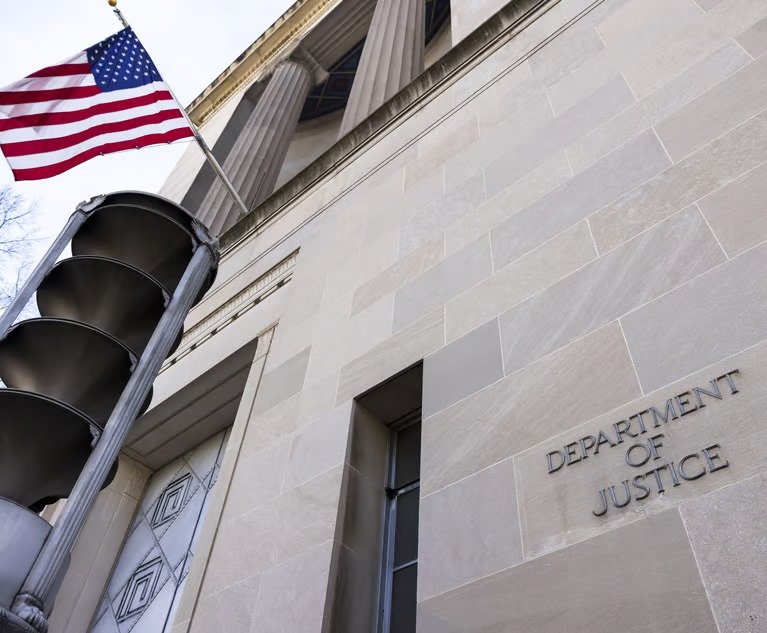A Shock to the System’: Some Government Attorneys Are Forced Out, While Others Weigh Job Options
The landscape of government legal work is undergoing significant upheaval, with reports of attorneys being forced out of their positions and others considering their career options. This trend has sent shockwaves through the legal community, raising concerns about the stability of government legal departments and the broader implications for public service. This article explores the factors driving these changes, their impact on government attorneys, and what the future may hold for this critical sector.
What’s Happening?
In recent months, there have been increasing reports of government attorneys being asked to resign, reassigned to different roles, or pushed out of their positions. This phenomenon is not limited to a single agency or administration but appears to be part of a broader shift in how government legal departments are being managed. At the same time, many attorneys are voluntarily leaving their government roles, citing concerns about workplace culture, political pressures, and limited career advancement opportunities.
Why Are Government Attorneys Leaving or Being Forced Out?
Several factors are contributing to this trend:
- Political Pressure and Ideological Shifts
Changes in administration or leadership often lead to shifts in priorities and personnel. Attorneys who are perceived as not aligning with the new administration’s agenda may be asked to leave or reassigned. This has created an environment of uncertainty and instability for many government lawyers. - Workplace Culture and Morale
Reports of toxic workplace cultures, lack of support, and increasing workloads have led some attorneys to seek opportunities elsewhere. High levels of stress and burnout are common in government legal roles, particularly in high-stakes areas like litigation, regulatory enforcement, and national security. - Competition from the Private Sector
Government attorneys often face significant pay disparities compared to their counterparts in the private sector. With law firms and corporations offering higher salaries, better benefits, and more flexible work arrangements, many government lawyers are tempted to make the switch. - Retirement and Attrition
An aging workforce and a wave of retirements have also contributed to the turnover in government legal departments. As experienced attorneys leave, younger lawyers may feel less inclined to stay in roles with limited upward mobility. - Reorganization and Budget Cuts
Some agencies are undergoing reorganization or facing budget cuts, leading to reductions in staff and resources. Attorneys may be forced out as part of cost-cutting measures or restructuring efforts.
Impact on Government Legal Work
The exodus of government attorneys has significant implications for the functioning of legal departments and the delivery of public services:
- Loss of Institutional Knowledge
Experienced attorneys bring valuable expertise and historical context to their roles. Their departure can result in a loss of institutional knowledge, making it harder for agencies to navigate complex legal issues. - Increased Workloads for Remaining Staff
As attorneys leave, those who remain often face increased workloads and responsibilities. This can lead to burnout, decreased morale, and a decline in the quality of legal work. - Delays in Legal Processes
Staff shortages and turnover can cause delays in litigation, regulatory enforcement, and other legal processes. This can undermine the effectiveness of government agencies and erode public trust. - Challenges in Recruitment and Retention
The perception of instability and political interference in government legal work may deter talented attorneys from pursuing or staying in public service roles. This could lead to a long-term talent drain in government legal departments.
What Are Government Attorneys Doing Next?
Attorneys who leave government service have a range of career options:
- Private Practice
Many former government attorneys transition to law firms, where they can leverage their expertise in areas like regulatory compliance, litigation, and investigations. - In-House Counsel
Corporations and nonprofits often seek out government attorneys for their deep knowledge of regulatory frameworks and public policy. - Academia
Some attorneys move into teaching or research roles at law schools, sharing their experience with the next generation of lawyers. - Public Interest Work
Others remain in the public sector but shift to roles in advocacy organizations, think tanks, or international institutions. - Consulting
Former government attorneys may also work as consultants, advising clients on navigating complex legal and regulatory landscapes.
What Can Be Done to Address the Crisis?
To stem the tide of departures and attract top talent, government agencies may need to take proactive steps:
- Improve Workplace Culture
Addressing issues like burnout, lack of support, and toxic environments can help retain attorneys and boost morale. - Offer Competitive Compensation
While government salaries may never match those in the private sector, offering better pay, benefits, and work-life balance can make public service more appealing. - Provide Career Development Opportunities
Investing in training, mentorship, and career advancement programs can help attorneys see a future in government service. - Insulate Legal Work from Political Interference
Ensuring that legal decisions are based on merit rather than political considerations can restore confidence in government legal roles. - Streamline Hiring Processes
Simplifying and expediting the hiring process can help agencies fill vacancies more quickly and reduce the burden on existing staff.
Conclusion
The current upheaval in government legal departments represents a “shock to the system” that has far-reaching consequences for public service and the rule of law. While some attorneys are being forced out, others are choosing to leave, driven by political pressures, workplace challenges, and better opportunities elsewhere. To address this crisis, government agencies must take meaningful steps to improve working conditions, offer competitive compensation, and protect the integrity of legal work. Without action, the loss of talented attorneys could undermine the effectiveness of government legal departments and erode public trust in the institutions that serve them.


